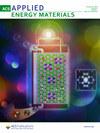How repeated exposure to persuasive messaging shapes message responses over time: a longitudinal experiment
IF 5.4
3区 材料科学
Q2 CHEMISTRY, PHYSICAL
引用次数: 0
Abstract
Repeated exposure theories have articulated several processes that explain how message repetition shapes persuasion over time, yet these processes are often studied in isolation. Moreover, repeated exposure theories have largely failed to specify the temporal trajectories of negative message responses over time. Integrating theorizing on repeated exposure, psychological reactance, and message fatigue, we conducted a mixed-design experiment (N = 1,416 total observations), varying the amount of daily exposure audiences had to campaign advertisements about distracted driving over nearly 2 weeks. Exposure to these messages (compared to control messages) led to greater message elaboration and reactance but not fatigue or attitudes. We found no evidence that these message reactions shifted linearly, logarithmically, or quadratically over time, with the exception that anger increased linearly with subsequent exposures. These findings suggest constraints on predictions made by repeated exposure frameworks, and post hoc analyses underscore the need to distinguish fatigue’s two dimensions conceptually and operationally.反复接触有说服力的信息如何随着时间的推移形成信息反应:一项纵向实验
重复暴露理论阐明了几个过程,这些过程解释了信息重复是如何随着时间的推移而形成说服力的,然而这些过程往往被孤立地研究。此外,重复暴露理论在很大程度上未能明确负面信息反应随时间变化的时间轨迹。结合重复暴露、心理反应和信息疲劳等理论,我们进行了一项混合设计实验(N = 1,416 个观察值),在将近两周的时间里,改变受众每天接触有关分心驾驶的活动广告的次数。与对照组相比,接触这些信息会导致更多的信息阐述和反应,但不会导致疲劳或态度。我们没有发现任何证据表明这些信息反应会随着时间的推移而发生线性、对数或四分位移,只有愤怒会随着随后的接触而线性增加。这些研究结果表明,重复暴露框架的预测会受到限制,而事后分析则强调了从概念上和操作上区分疲劳的两个维度的必要性。
本文章由计算机程序翻译,如有差异,请以英文原文为准。
求助全文
约1分钟内获得全文
求助全文
来源期刊

ACS Applied Energy Materials
Materials Science-Materials Chemistry
CiteScore
10.30
自引率
6.20%
发文量
1368
期刊介绍:
ACS Applied Energy Materials is an interdisciplinary journal publishing original research covering all aspects of materials, engineering, chemistry, physics and biology relevant to energy conversion and storage. The journal is devoted to reports of new and original experimental and theoretical research of an applied nature that integrate knowledge in the areas of materials, engineering, physics, bioscience, and chemistry into important energy applications.
 求助内容:
求助内容: 应助结果提醒方式:
应助结果提醒方式:


